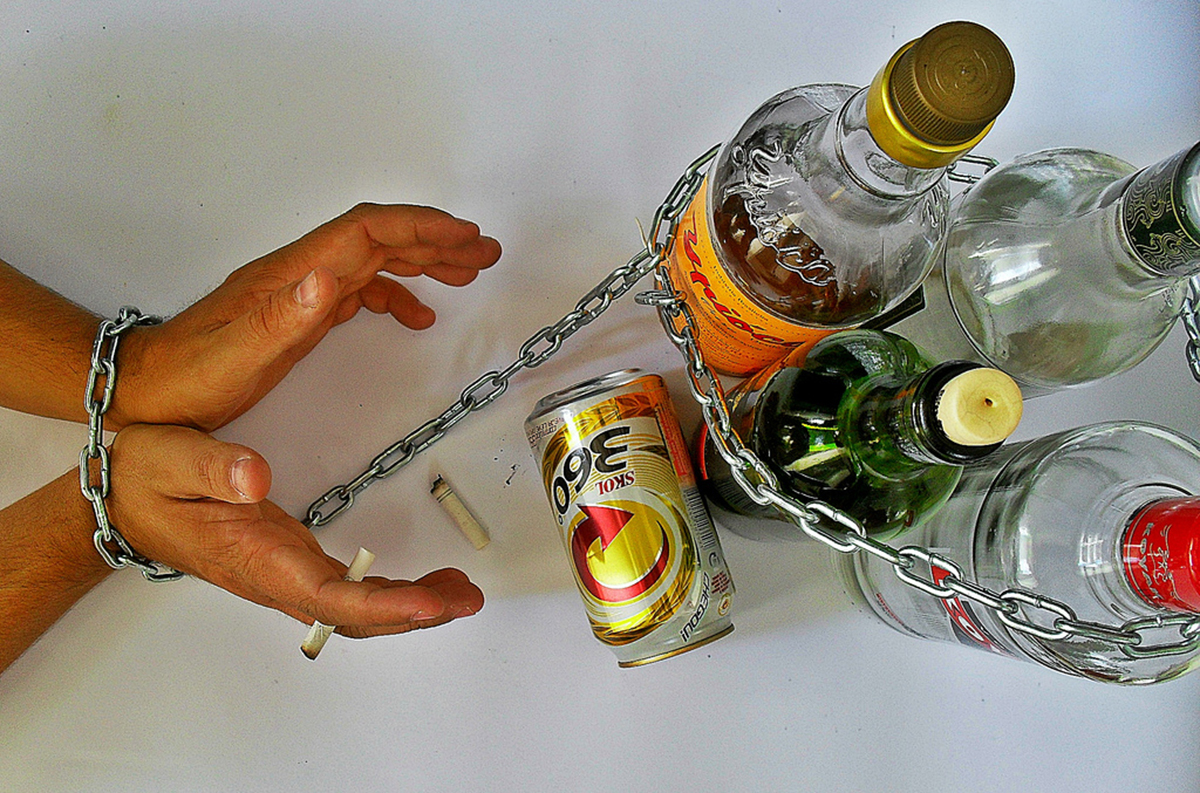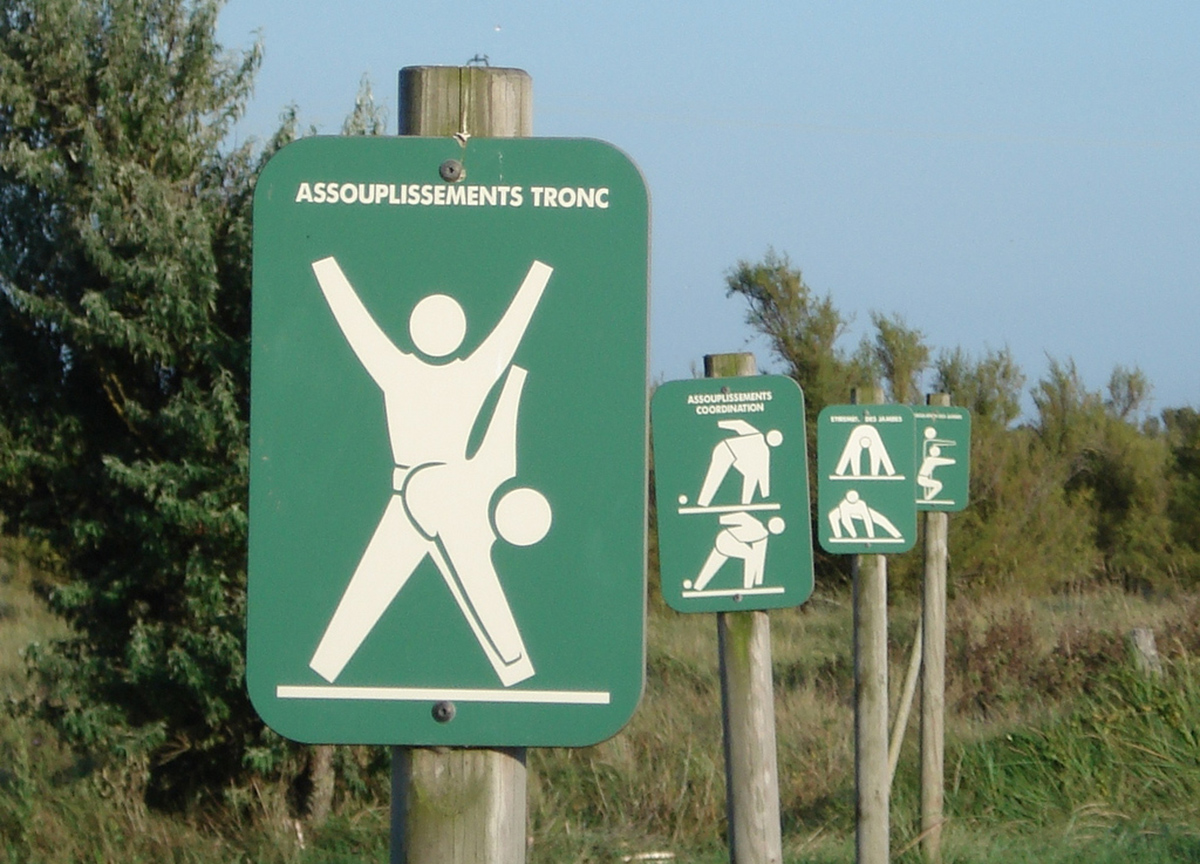"Fitness was and continues to be absolutely integral to my sobriety," Ray, an alcoholic who has been sober for eight years now, told SteadyHealth. Ray became addicted to alcohol in his teens, and when he decided he wanted out, he only knew he wanted a different life — he had no idea what that would actually look like. "It's only after becoming sober that you realize there really are 24 hours in a day. Being unemployed, really, having nothing to do, I needed something, something else, to fill up that space."
Ray started going to the gym, and later got into kickboxing. As an atheist, he wasn't comfortable with attending Alcoholics Anonymous or other 12-step based programs. It was fitness that got him through the hard times, and keeps him going to this day. Fitness gave Ray a new way of life. A healthy way of life, in which the alcohol didn't leave such a gaping hole.

How Alcoholism Creeps Up On You — And Why Fitness Can Be A Way Out
J David Glass, professor of biological sciences at Kent State University and author of a study on alcoholism, explained: "With continual alcohol use, one may go to bed too early or late, not sleep across the night, and have an unusual eating regime, eating little throughout the day and/or overeating at night."
Alcoholism seeps into every fiber of your being, frequently disrupting connections with the rest of the world and forcing sufferers into a zombie-like lifestyle. Contrary to popular belief, alcohol doesn't, actually, help people sleep better. As Glass shared, the alcohol abuse can lead people to experience disrupted sleep, only to crave more alcohol to overcome that problem. It becomes, as he said, a vicious cycle.
Once someone is committed to becoming sober, the disrupted life patterns are already deeply ingrained, and hard to break. Glass' hamster study found that wheel-running could help alcohol addicted hamsters regulate their sleep-wake patterns, thus reducing their alcohol cravings:
"A [...] key finding was that hamsters that displayed greater sensitivity to the disruptive effects of constant light on circadian rhythms also craved alcohol less. Thus, there may be an underlying genetic predisposition for alcohol dependence and abuse that is expressed under challenging circadian conditions [...] such as shift work, sleep problems or repeated jet-lag exposure."
Regular exercise, in other words, reduces alcohol cravings and returns circadian rhythms to a healthier state, in turn allowing recovering alcoholics to begin experiencing more normal lives — which, once again, helps them maintain their sobriety. Exercise isn't just good for those who already firmly committed to sobriety, however, it can also give current alcohol addicts lessen their cravings.
Exercise As A Distraction
Once a person quits drinking, they may, as Ray did, find that they're suddenly swimming in a sea of time. While the days, weeks, and months once simply disappeared, they're now unsure how to fill that empty space. The camaraderie of a gym, a kickboxing club, or any other exercise outlet, not only provides a distraction, but also positive peer pressure to keep on the right track. In kickboxing, Ray found mentors and a new purpose in life, one that allowed him to look beyond.
READ Overcoming Alcoholism: What To Expect
In those recovering alcoholics for whom their social circle is a great obstacle, regular attendance of group-based exercise can also provide a new crowd that helps them step away from the past.
Can You Exercise Your Way To Alcohol Recovery?
Feeding The Brain's Positive Reward System
Alcohol addiction messes with the brain's positive rewards to release dopamine, a chemical that gives you a buzz, a feeling of reward. Even beyond withdrawal, when a person is left without that reward after becoming sober, it's tough. Exercise won't get you drunk, but it does also cause the body to release that same dopamine. As any hardcore exercise buff will tell you, fitness offers a buzz — but a healthy, positive one!
Recovering alcoholics may find that exercise allows them to fill a deep need in a much better way, and even non-alcoholics with a strong family history of alcohol abuse may discover that fitness helps them.

Watch out, though: the body may not physically become addicted to exercise, the emotional rewards one gets can indeed lead to a kind of emotional dependence in some recovering alcoholics. Take care of your body, and see a counselor if you notice that exercise is beginning to play much the same role in your life that alcohol previously did.
Exercise: The Road To Emotional Freedom?
Quitting booze means that your personal numbing system is gone. The path that led a person to alcoholism can suddenly dominate the mind again, leading to emotional pain of the "difficult to cope with" kind. Nobody is suggesting using exercise as a way to drown out that pain, but it can indeed help recovering addicts discover a new self. Exercise can play a cathartic role in overcoming difficulties, be motivational, and allow one to gain confidence in their ability to achieve new feats.
Should You Use Exercise As A Way To Help You Recover From Alcoholism?
Alcohol recovery is a long and difficult road, one you're never quite done with. At the very beginning, or even before you commit to sobriety, regular exercise can help you reduce cravings and get you through those initial hard patches.
READ Recovering From Alcoholism Without Inpatient Care: Is It Possible?
Exercise is a very positive addition to an alcohol recovery program — which is why programs such as the Salt Lake City-based Fit to Recovery addicts-only exercise program exists, for instance. Such programs are a great idea that also allow recovering alcoholics to meet others in their shoes. While there is great power in exercise, we'd also advise you to seek out medical advice and counseling or a support group for recovering alcoholics in some form, to ensure optimal mental and physical health during your quest to recovery.
- Photo courtesy of imagensevangelicas: www.flickr.com/photos/imagensevangelicas/6339939875/
- Photo courtesy of Sanchom: www.flickr.com/photos/sanchom/2963072255/
- Photo courtesy of imagensevangelicas: www.flickr.com/photos/imagensevangelicas/6339939875/


Your thoughts on this